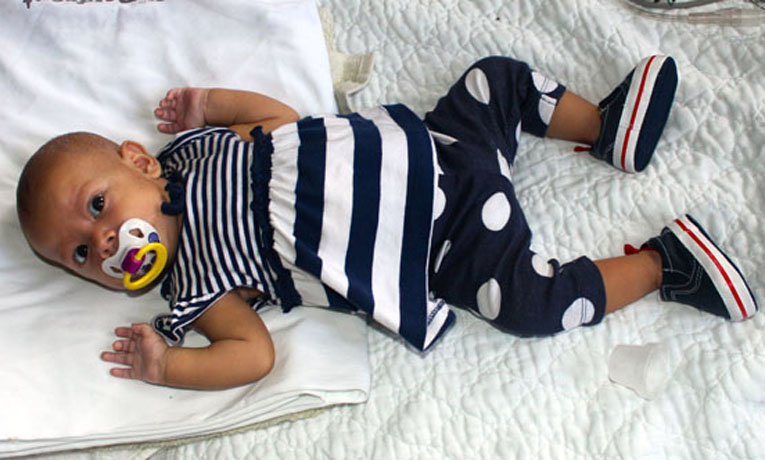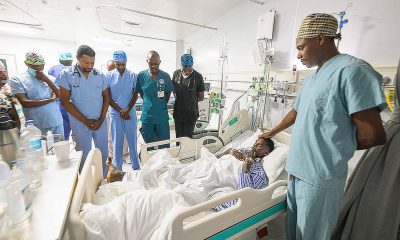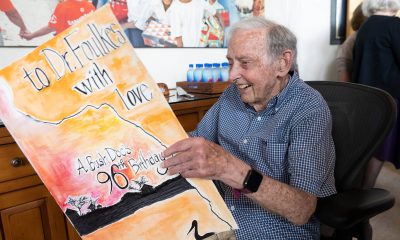By Judy Blumhofer, serving at Hospital Loma de Luz in La Ceiba, Honduras, through the World Medical Mission Post-Residency program
A few weeks ago, a baby came in with what I thought was the beginning of a cold. She looked great and showed no concerning signs, so I sent her home with every expectation that she would get better in the next few days.
But she didn’t get better. The child came back two weeks later much sicker and was quickly admitted. She clearly had pneumonia, but the more I listened to her symptoms, the more concerned I became for whooping cough as well. That is never a good diagnosis, especially in an unimmunized 2-month-old girl.
She fit almost every characteristic to suggest that her condition would be severe. So the worry and the guilt began inside of me. “Maybe, just maybe, if I’d caught this two weeks ago, she wouldn’t be this sick now,” I thought.
No matter how much I knew that there was no way to catch this earlier, I still regretted that somehow I should have prevented it.
As she stayed with us day after day and got sicker, my anxiety level got higher. I read more, trying to prepare myself for whatever might come. But all that really did was help dig myself into a bigger and darker hole as I learned even more about how ugly whooping cough can be.
I’d seen a case or two in residency, but it was when I had experts and resources on hand. Here, I was supposed to supply all of that on my own. Instead of finding answers, I found questions. So we read, we tried various interventions, we made phone calls, we prayed, and we waited.
She was quickly getting beyond what I was able to handle. More than once I talked with the family about transferring her to the public hospital, an hour and a half away. I wasn’t sure the other hospital could do anything more than we were doing. But if there was a chance, we had to give it to her. The machines, the medications, the procedures and the monitoring were all things I had no knowledge of or access to if her condition got even worse.
But the family chose to keep their daughter at Hospital Loma de Luz. Even if she got worse, they wanted us to care for her. I assumed it was because they would not be able to pay for health care in the city and did not want to be away from family.
So the weight of responsibility got heavier on me, and my prayers became even more earnest—prayers born of desperation, fear and panic.
We rechecked the labs the next day and while some showed improvement, others revealed the condition was getting serious. I felt the knot in my gut grow even tighter.
That evening, we all stood around her bed, joined hands, and prayed. To be exact, I pleaded. And everyone else in the circle joined me. One mighty chorus was raised up to heaven that night from our staff at the hospital, from churches in Honduras, and from many people in the States and around the world.
The next morning, her labs showed drastic improvement. I nearly cried in relief. Her breathing was easier. She was more alert and less irritable. The knot in my stomach unclenched just a tad. I went through the day, running back and forth to check on her between patients, meetings, and errands. I changed absolutely nothing on her medication regime or her oxygen support, too scared that I might tip a very finely balanced scale in the wrong direction.
That night, I sat in her room with her parents. Her father met my eyes and said, “She’s getting better.” It wasn’t a question he was looking for me to answer, or even an observation he wanted me to affirm, but rather a statement of fact. I looked right back at him and softly said, “Thank God. I didn’t know what else to do, but our prayers are being answered.” And in his response, I came face-to-face with true faith.
“Our church is praying,” he said. “All the churches in this area are praying, and my pastor was up all night praying for her. But we are also praying for you. We’re praying that God would use your hands to heal her, and that he will give you the knowledge and the medicines you need to do that. God is using you, and that is why we chose to stay at this hospital instead of going to a different one as she got worse.”
I nearly cried again in relief, but also in humility, thankfulness and awe. While I was grappling with guilt, doubt ,and fear, and trying to reconcile keeping a child I couldn’t help when there was a chance someone else could, this family and these churches had been exercising a deep faith.
Rather than running somewhere else based on the possibility of finding more help elsewhere, they chose to stay here and trust God. I looked at her case and saw the end of my abilities. They looked at her illness and saw a God for whom nothing is impossible.
She’s still here, slowly weaning off oxygen and improving in many ways. And I am here, looking at this child, and realizing how fortunate I am both to have the privilege of caring for her, but also to be prayed for by her family and her church. I have been incredibly humbled beyond anything I could imagine.






